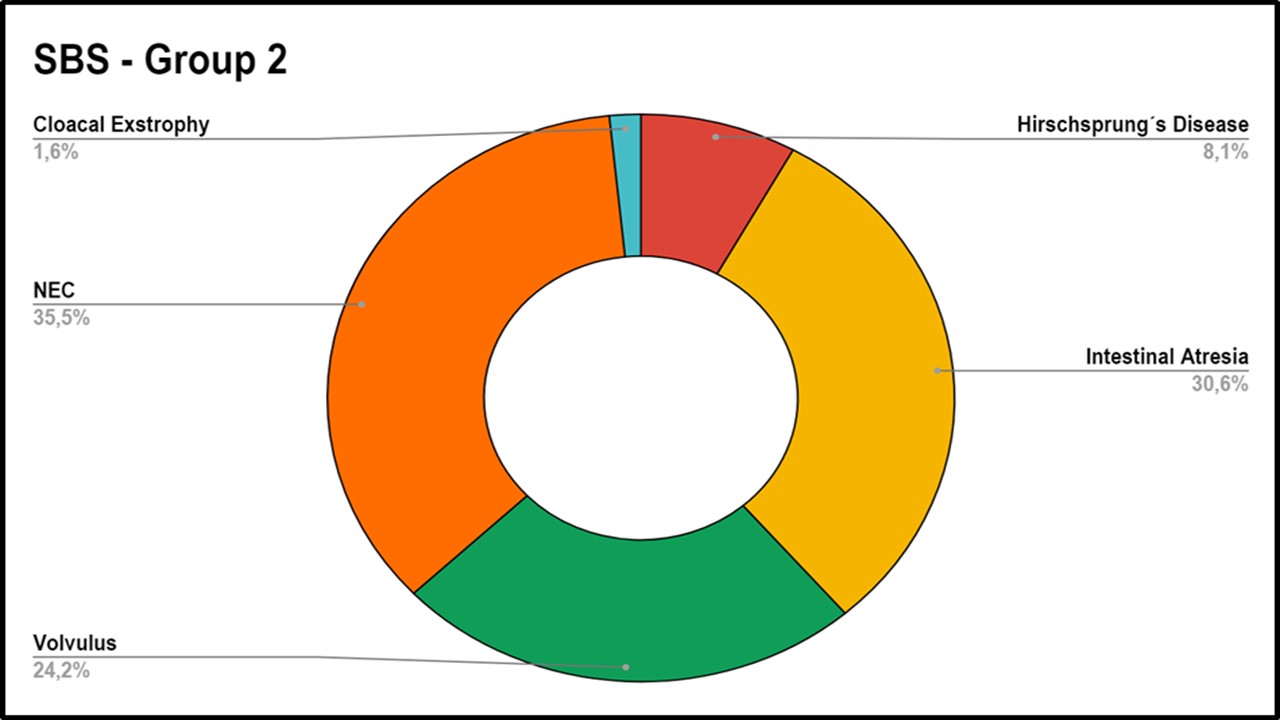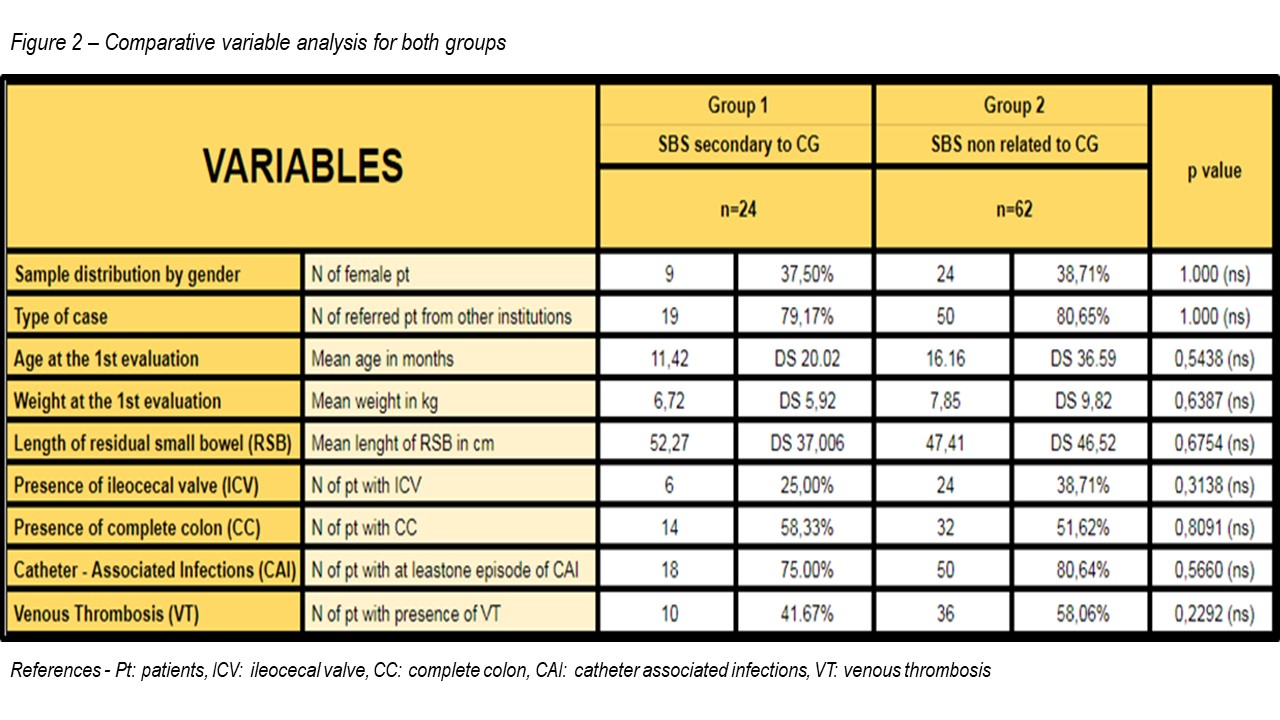Introduction: Short bowel syndrome (SBS) is the main cause of intestinal failure (IF) and complex gastroschisis (CG) is the most frequent underlying cause in our population. It has been reported that children with SBS related to CG have a worse prognosis. The present work aims to analyze our results in the treatment of SBS secondary to CG and compare them with those obtained in cases of SBS related to other underlying diseases.
Methods: A descriptive, retrospective study was carried out, using data collected from institutional electronic records and the specific IF database. Inclusion criteria: patients under 18 years of age, with IF defined as parenteral nutrition (PN) dependency greater than 2 months and diagnosis of SBS. Patients were divided into 2 groups: G1 included cases of SBS associated with CG and G2 patients with SBS related to other diagnosis. Intestinal rehabilitation (sustained suspension of PN), need for intestinal transplantation and mortality were analyzed for both groups. Additionally, the influence of different exposure variables such as anatomical features of the digestive tract and adverse events related to prolonged PN, was analyzed for the group of patients with CG.
Results: We obtained a final number of 86 patients with 24 in G1 and 62 in G2. Both groups were comparable. No statistical difference in intestinal rehabilitation (G1 78.9% vs G2 57,14%) and mortality rate (G1 20.8% vs G2 20,9%) was found, although a trend to better outcome in achieving intestinal rehabilitation was observed for patients with CG. Additionally, all the patients in G1 with complete colon are currently off-TPN with a significant statistical association of this variable to intestinal rehabilitation. Regarding need for transplantation, taking into account all the patients that were transplanted as well as those that are candidates in the waiting list, both groups exhibited similar results with no statistical difference (G1 20,8% vs G2 14,5%).
Conclusions: CG is the main individual cause of IF in our population. In the context of specialized multidisciplinary treatment, our results show that the majority of patients with SBS secondary to CG survive and succeed in suspending PN, with similar results as those observed in patients with SBS secondary to other entities. The preservation of the colon whenever possible, as well as the prevention of adverse events related to PN, can improve the outcome in these patients.


.jpg )